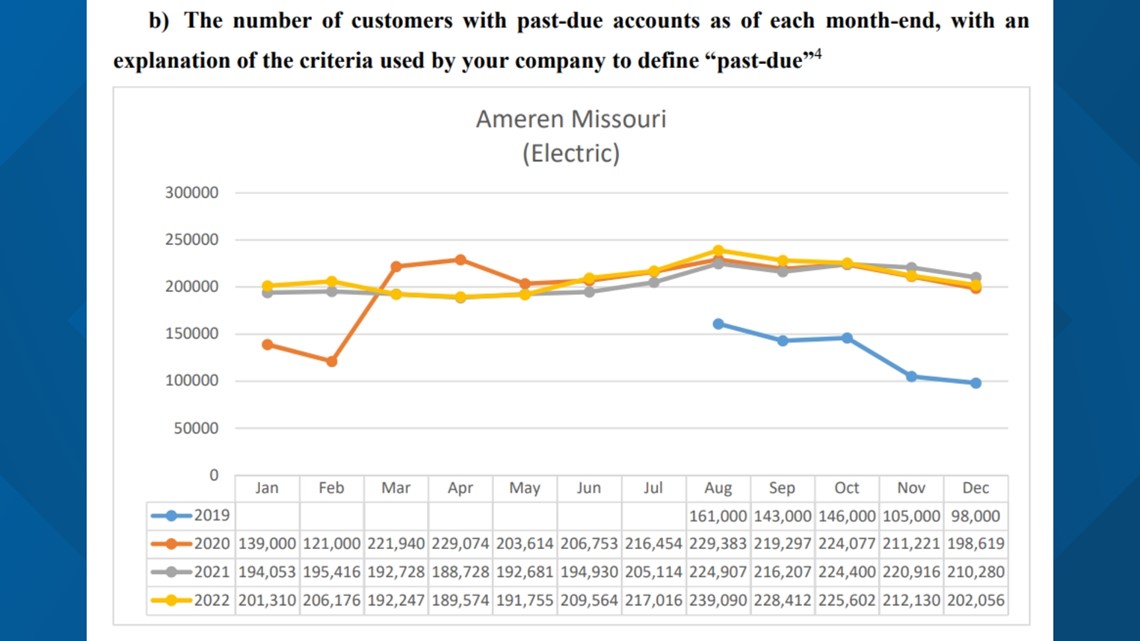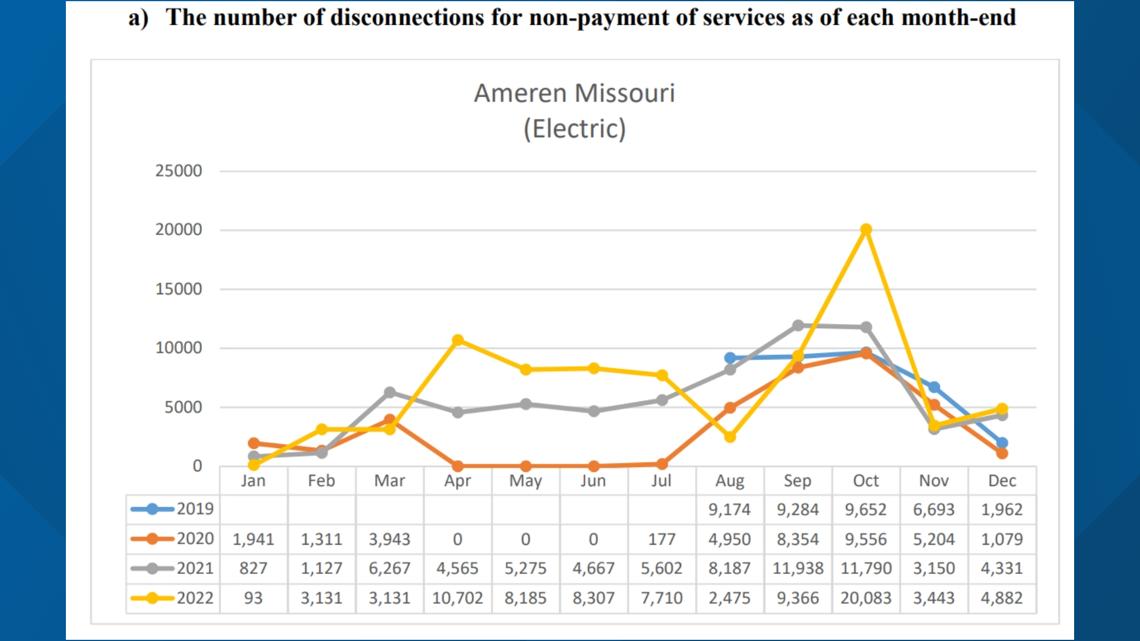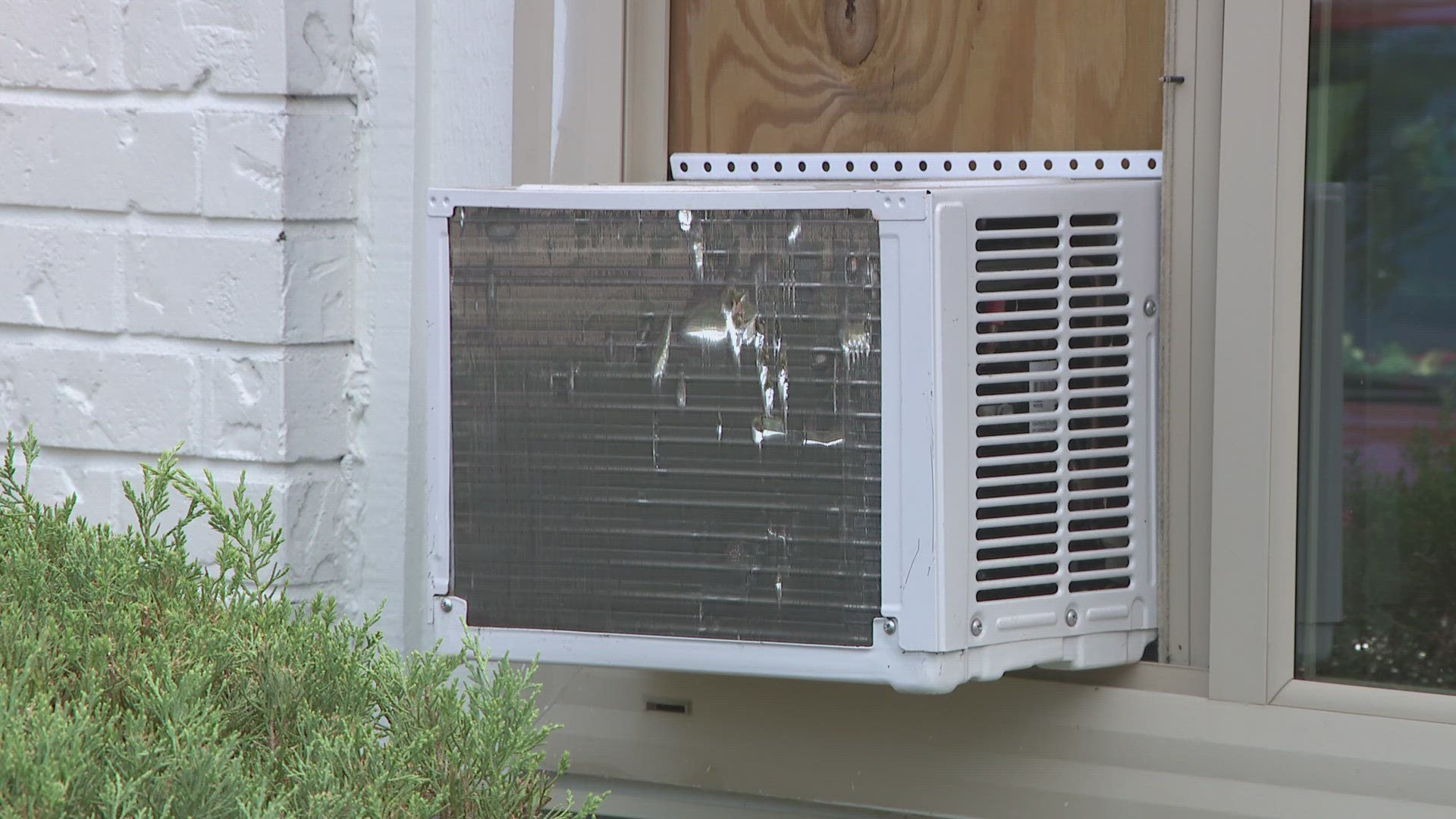ST. LOUIS — A continuously growing number of Missourians are falling behind on their electricity bills, and the state's largest utility is being tight-lipped on when and how they make the decision to cut off people from their power.
An average of 205,000 Missouri accounts were past due on their monthly Ameren bill between 2020–2022, according to recently obtained data from the state's Public Service Commission. That's over one-sixth of Ameren's Missouri accounts.
For clarification, a single account does not equal a single person—one account can be tied to a family or a residence with multiple people.
Failing to pay electricity bills puts residents at risk of being cut off from power, but how does Ameren decide when or who they disconnect?
The utility wouldn't tell us.


5 On Your Side reached out to Ameren Missouri four times over two weeks requesting details about the utility's disconnection policy. Ameren did not share its policy and only said that disconnection is a "last resort."
"Ameren Missouri views disconnection as an absolute last resort and typically only occurs when a customer takes no action to contact us, even after multiple communications encouraging them to do so," the utility provider said in an email.
The utility also told 5 On Your Side that they offer financial assistance programs to individuals who have difficulty paying their bills. However, Ameren did not provide specific details on how they decide which past-due customers to initiate the disconnection process on.
Ameren took that last resort action more in October 2022 than any other month prior since mid-2019, PSC data showed. The utility cut off electricity for 20,083 that month alone.
While that number is 8,000 more accounts than it had cut off in prior months, it is still a fraction of the 225,602 accounts that were categorized as "past due."
When asked why October was an especially high month for disconnects, Ameren only said there could have been a variety of factors that caused that spike including the economy and weather.
Part of that reason may have been Missouri's Hot Weather Law, which mandates that utility companies can't shut off electricity and gas service to residential customers between June 1–Sept. 30 when temperatures are above 95 degrees. On Oct. 1, the Hot Weather Law ends and utilities are able to disconnect people again.
The state also has a Cold Weather Rule that bars utility cut-offs from Nov. 1 to March 31, when temperatures are below 32 degrees.


Missouri law allows people to be cut off from utilities for numerous reasons, including for "nonpayment of an undisputed delinquent charge." Utilities, however, are free to choose which past-due customers they start the disconnection process on.
State law only specifies that utilities must send cut-off notifications to people who have failed to pay their bills 10 days prior to the cut-off date if the notice is delivered by mail or 96 hours if the notice is delivered by hand. The utility must also attempt to contact the customer 24 hours before disconnecting service to provide details on how disconnection can be avoided.
People who are past due on their bills can seemingly be cut off at the utility's discretion, according to state law and the company's response.
Ameren refused to answer whether the company took any specific factors into account when deciding which non-paying customers to cut off, including whether there was a specific number of bills a customer could miss or messages a customer doesn't respond to, or if the company's policy differed for customers who use a high amount of electricity.
"Customers who may be subject to disconnection, which is always viewed as a last resort, are contacted at least three times prior to service interruptions," an Ameren spokesperson said. "Any customer needing help with their bill is encouraged to contact us right away."
The first-of-its-kind data was shared by the PSC as it decides whether to force each of Missouri's utility companies to publicly disclose and standardize disconnect data. The decision comes after the National Association of Regulatory Utility Commissioners urged states in 2019 to track utility cut-offs since disconnects have continued to rise over the past 50 years despite support from federal and state tax dollars.
Utility companies and consumer advocacy groups seemed to largely be in favor of the rule, but disagreed on whether ZIP codes should be part of the data that's shared.
Opponents claim that providing the ZIP codes of disconnected accounts would infringe on customers' privacy. Advocacy groups said being able to pinpoint which ZIP codes had the highest rate of disconnects would help show which areas were most in need of funding.
"Several utilities say that it would be a burden for them to do this and it would require a full-time employee, which would be an undue cost," said Jenn DeRose, a field organizer with the Sierra Club's Missouri chapter. "To not want to invest in this small but meaningful step that would allow community-action groups to provide targeted assistance to communities that need it is, frankly, kind of gross. I think it's worth the investment. Don't you?"
Top St. Louis headlines
Get the latest news and details throughout the St. Louis area from 5 On Your Side broadcasts here.

